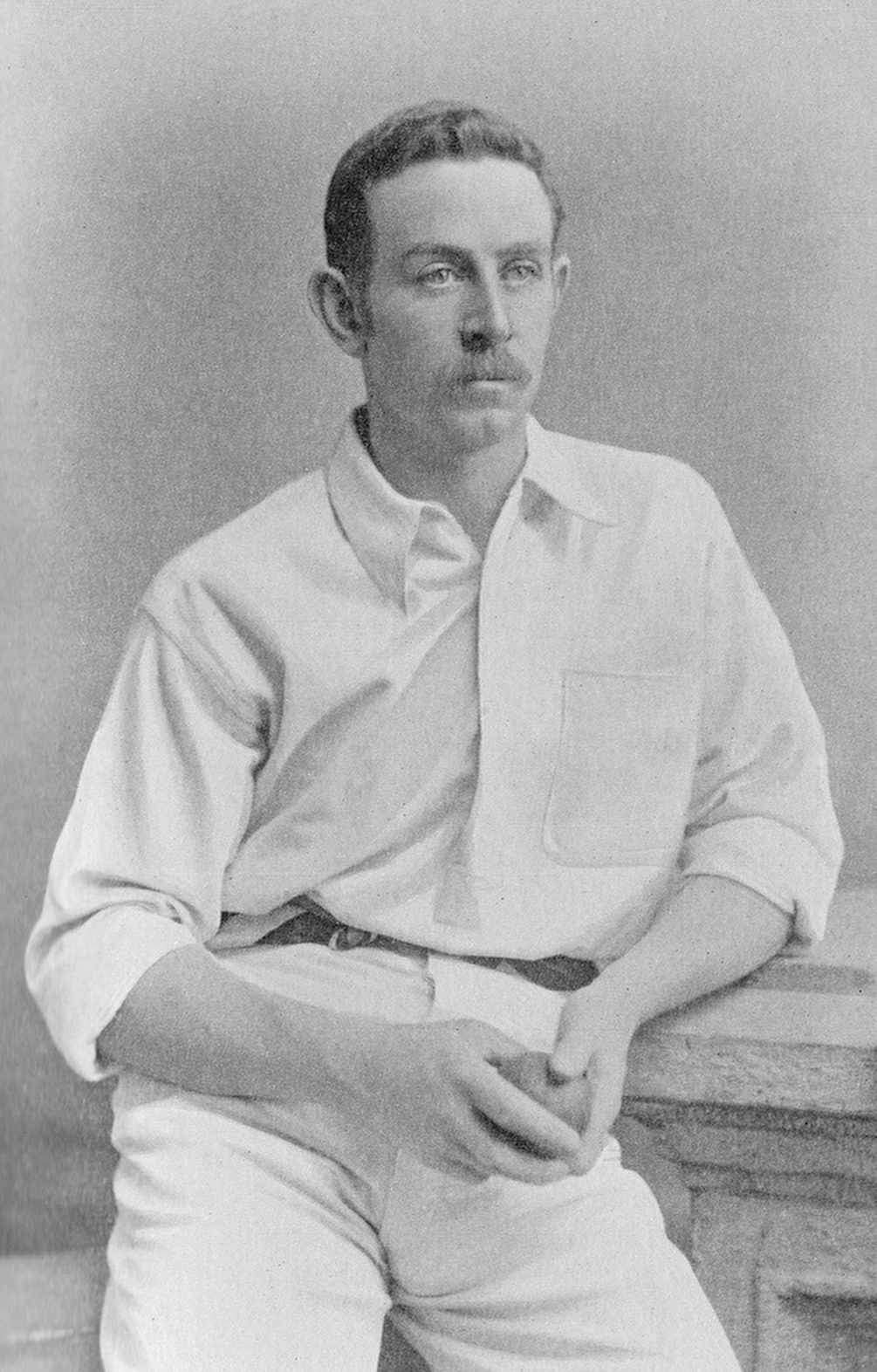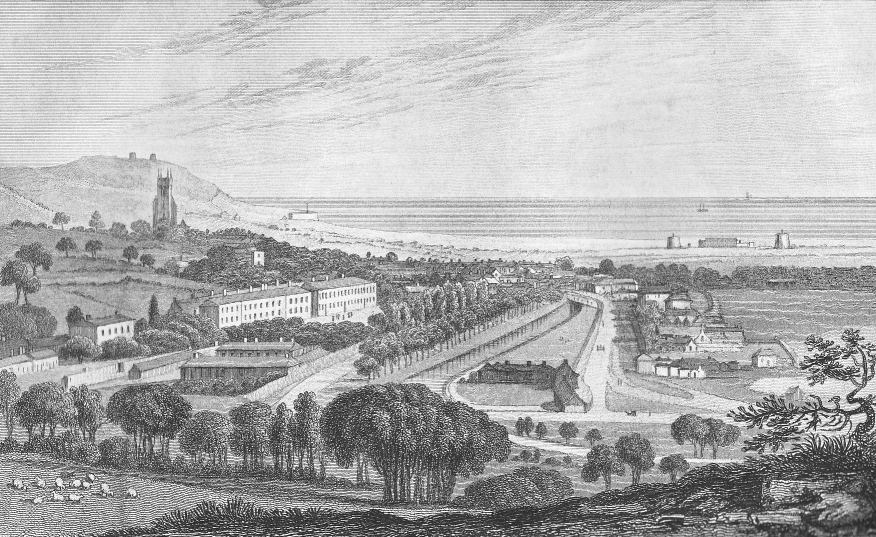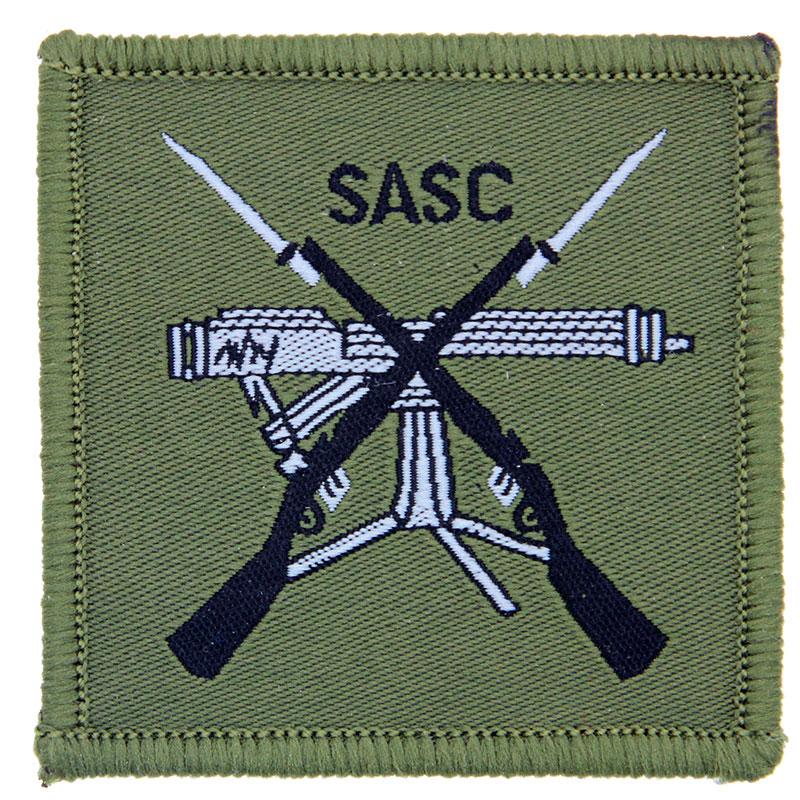|
Charles Turner (English Cricketer)
Charles Turner (11 March 1862 – 20 May 1926) was an English cricketer and British Army officer. Turner's batting and bowling styles are unknown. He was born in Gringley-on-the-Hill, Nottinghamshire and died at Thatcham House, Thatcham, Berkshire. Cricket Turner made his first-class debut for Gloucestershire against Nottinghamshire in 1886. He played a further first-class match in 1886 against Sussex, before making a final appearance in 1889 against Middlesex. He scored 33 runs in his 3 matches, at a batting average of 6.60, with a high score of 17. He took 3 wickets with the ball, coming at 39.66 runs a piece, with best figures of 1/16. Personal life Prior to playing cricket, Turner was commissioned as a second lieutenant into the Royal Berkshire Regiment. Turner was a proficient sketcher and reporter, as reported by his commanding officer on 29 November 1882. The same year he served in the Egyptian campaign. The following year he undertook training at the School of Mus ... [...More Info...] [...Related Items...] OR: [Wikipedia] [Google] [Baidu] |
Charles Turner (Australian Cricketer)
Charles Thomas Biass Turner (16 November 1862 – 1 January 1944) was a bowler who is regarded as one of the finest ever produced by Australia. Among his accomplishments were: * taking 283 wickets in the English season of 1888 for 11.27 runs each. This tally was 69 wickets ahead of Ted Peate's 1882 record, and has been bettered only by Tom Richardson in 1895 and Tich Freeman in 1928 and 1933. * taking 314 wickets in all matches in 1888. * taking 106 wickets in twelve matches in the Australian season of 1887–88 – a record for any bowler in Australia * taking 17 wickets for 50 runs against An England Eleven at Hastings in 1888. Of these 17, 14 were bowled, two lbw and one stumped. * being the first Australian bowler to reach 100 wickets in Test matches. * his 12 for 87 against England in his record season of 1887–1888 is still the best bowling analysis for a Test at the SCG. * the only bowler to take 50 wickets in their first six Test matches. Turner was born in Bath ... [...More Info...] [...Related Items...] OR: [Wikipedia] [Google] [Baidu] |
Officer (armed Forces)
An officer is a person who holds a position of authority as a member of an Military, armed force or Uniformed services, uniformed service. Broadly speaking, "officer" means a commissioned officer, a non-commissioned officer (NCO), or a warrant officer. However, absent contextual qualification, the term typically refers only to a force's ''commissioned officers'', the more senior members who derive their authority from a Commission (document), commission from the head of state. Numbers The proportion of officers varies greatly. Commissioned officers typically make up between an eighth and a fifth of modern armed forces personnel. In 2013, officers were the senior 17% of the British armed forces, and the senior 13.7% of the French armed forces. In 2012, officers made up about 18% of the German armed forces, and about 17.2% of the United States armed forces. Historically armed forces have generally had much lower proportions of officers. During the First World War, fewer than ... [...More Info...] [...Related Items...] OR: [Wikipedia] [Google] [Baidu] |
Alexander Buller Turner
Second Lieutenant Alexander Buller Turner VC (22 May 1893 − 1 October 1915) was a British Army officer and an English recipient of the Victoria Cross (VC) during the First World War, the highest and most prestigious award for gallantry in the face of the enemy that can be awarded to British and Commonwealth forces. His younger brother, Victor, was a recipient of the VC in the Second World War. Early life and military career Turner was born at home in Reading, Berkshire on 22 May 1893 to Charles Turner, later a major in the Royal Berkshire Regiment, and his second wife Jane Elizabeth, only daughter of Admiral Sir Alexander Buller. He was educated at Parkside School, Surrey and Wellington College, Berkshire and commissioned into the Special Reserve of Officers, Royal Berkshire Regiment, 3rd (Reserve) Battalion, on 11 September 1914, five weeks after the outbreak of the First World War. He was subsequently transferred to the 1st Battalion, Royal Berkshire Regiment. The ba ... [...More Info...] [...Related Items...] OR: [Wikipedia] [Google] [Baidu] |
Alexander Buller
Admiral Sir Alexander Buller (30 June 1834 – 3 October 1903) was a Royal Navy officer who went on to be Commander-in-Chief, China Station. Early life Alexander Buller was born on 30 June 1834, the second son of Rev. Richard Buller, rector of Lanreath, Cornwall, and his wife, Elizabeth Hornby, daughter of John Hornby of Hook, near Titchfield, Hampshire. His father was from a wealthy and well-connected family with a naval tradition; the rector's father, James Buller, was a Lord of the Admiralty in 1811 and later a Clerk to the Privy Council."The Late Admiral Buller" ''The Straits Times'', 3 November 1903, p. 2 The rectory had previously been occupied by his cousin, another Richard Buller, who had died in 1826Foster, ''Alumni Oxonienses: 1715-1886'', vol. i, p. 188 [...More Info...] [...Related Items...] OR: [Wikipedia] [Google] [Baidu] |
Saint Petersburg
Saint Petersburg, formerly known as Petrograd and later Leningrad, is the List of cities and towns in Russia by population, second-largest city in Russia after Moscow. It is situated on the Neva, River Neva, at the head of the Gulf of Finland on the Baltic Sea. The city had a population of 5,601,911 residents as of 2021, with more than 6.4 million people living in the Saint Petersburg metropolitan area, metropolitan area. Saint Petersburg is the List of European cities by population within city limits, fourth-most populous city in Europe, the List of cities and towns around the Baltic Sea, most populous city on the Baltic Sea, and the world's List of northernmost items#Cities and settlements, northernmost city of more than 1 million residents. As the former capital of the Russian Empire, and a Ports of the Baltic Sea, historically strategic port, it is governed as a Federal cities of Russia, federal city. The city was founded by Tsar Peter the Great on 27 May 1703 on the s ... [...More Info...] [...Related Items...] OR: [Wikipedia] [Google] [Baidu] |
Aldershot
Aldershot ( ) is a town in the Rushmoor district, Hampshire, England. It lies on heathland in the extreme north-east corner of the county, south-west of London. The town has a population of 37,131, while the Farnborough/Aldershot built-up area, Aldershot Urban Area – a loose conurbation, which also includes other towns such as Camberley and Farnborough, Hampshire, Farnborough – has a population of 243,344; it is the thirtieth-largest urban area in the United Kingdom, UK. Aldershot is known as the ''Home of the British Army'', a connection which led to its rapid growth from a small village to a Victorian era, Victorian town. History Early history The name is likely to have derived from alder trees found in the area (from the Old English 'alor-sceat' meaning copse, or projecting piece of land, featuring alder trees). Any settlement, though not mentioned by name, would have been included as part of the Hundred (division), Hundred of Crondall referred to in the Domesday Book ... [...More Info...] [...Related Items...] OR: [Wikipedia] [Google] [Baidu] |
World War I
World War I or the First World War (28 July 1914 – 11 November 1918), also known as the Great War, was a World war, global conflict between two coalitions: the Allies of World War I, Allies (or Entente) and the Central Powers. Fighting took place mainly in European theatre of World War I, Europe and the Middle Eastern theatre of World War I, Middle East, as well as in parts of African theatre of World War I, Africa and the Asian and Pacific theatre of World War I, Asia-Pacific, and in Europe was characterised by trench warfare; the widespread use of Artillery of World War I, artillery, machine guns, and Chemical weapons in World War I, chemical weapons (gas); and the introductions of Tanks in World War I, tanks and Aviation in World War I, aircraft. World War I was one of the List of wars by death toll, deadliest conflicts in history, resulting in an estimated World War I casualties, 10 million military dead and more than 20 million wounded, plus some 10 million civilian de ... [...More Info...] [...Related Items...] OR: [Wikipedia] [Google] [Baidu] |
Major (United Kingdom)
Major (Maj) is a military rank which is used by both the British Army and Royal Marines. The rank is superior to Captain (British Army and Royal Marines), captain and subordinate to Lieutenant colonel (United Kingdom), lieutenant colonel. The insignia for a major is a Crown (headgear), crown. The equivalent rank in the Royal Navy is Lieutenant commander (Royal Navy), lieutenant commander, and squadron leader in the Royal Air Force. History By the time of the Napoleonic Wars, Napoleonic wars, an infantry battalion usually had two majors, designated the "senior major" and the "junior major". The senior major effectively acted as second-in-command and the majors often commanded detachments of two or more company (military unit), companies split from the main body. The second-in-command of a battalion or regiment is still a major. File:British-Army-Maj(1856-1867)-Collar Insignia.svg, 1856 to 1867 major's collar rank insignia File:British-Army-Maj(1867-1880)-Collar Insignia.svg, 18 ... [...More Info...] [...Related Items...] OR: [Wikipedia] [Google] [Baidu] |
Hythe, Kent
Hythe () is an old market town and civil parish on the edge of Romney Marsh in Kent, England. ''Hythe'' is an Old English word meaning haven or landing place. History The earliest reference to Hythe is in Domesday Book (1086) though there is evidence of the area having been settled since Roman times. The town has mediaeval and Georgian buildings, as well as a Saxon/ Norman church on the hill and a Victorian seafront promenade. Hythe was once defended by castles at Saltwood and Lympne. Hythe Town Hall, a neoclassical style building, was completed in 1794. Hythe's market once took place in Market Square (now Red Lion Square) close to where there is now a farmers' market every second and fourth Saturday of the month. Hythe has gardening, horse riding, bowling, tennis, cricket, football, squash and sailing clubs. Lord Deedes was once patron of Hythe Civic Society. As an important Cinque Port, Hythe once possessed a bustling harbour which, over the course of 300 years ... [...More Info...] [...Related Items...] OR: [Wikipedia] [Google] [Baidu] |
Small Arms School Corps
The Small Arms School Corps (SASC) is a small corps of the British Army, established in 1853 by Lord Hardinge. Its personnel provide advice and instruction to infantry weapon trainers throughout the army, in order to maintain proficiency in the use of small arms and support weapons, and in range management. History Prior to 1838, the majority of British soldiers were issued with the "Brown Bess" Land Pattern Musket, a smooth-bore, muzzle loading black powder flintlock musket which had seen service in one form or another since 1722. In 1849, Claude-Étienne Minié produced the Minié rifle, although still a muzzle loader three important advances were incorporated. Firstly, it has a rifled bore; secondly used an expanding bullet that improved accuracy out to and greatly reduced reloading time; and thirdly incorporated percussion cap ignition of the black powder charge. Re-equipment of the army with this new firearm, which was adopted in 1851, continued through to 1855. The con ... [...More Info...] [...Related Items...] OR: [Wikipedia] [Google] [Baidu] |




